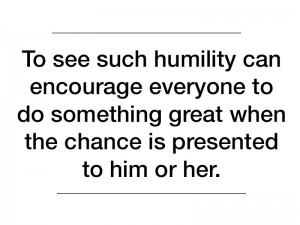I am what some would call “ex-gay”. Let me explain.
Since late middle school, I have almost exclusively been attracted to men, both physically and visually – sometimes emotionally, too. I remember finding girls and women physically attractive for a year or two before this, but seventh grade is about the time I became addicted to pornography, and my view of men and women quickly became distorted. I’ve lost most battles against the temptation of pornography since. Each time, I fell for the temptation to sexualize images of men. It has always been tempting to define myself as “gay” or “homosexual”, but I never actually have. Inwardly, though, I have questioned my sexuality many times. It is only within the past two years that, with the help of counseling, accountability, support, and Christ’s redemptive power, I have begun healing. And as I recover from a porn addiction, my sexuality has been healing, too.
Do understand: my story is mine alone, and cannot be used as an exemplar of “the gay story”, if one even exists. Nevertheless, I think my story is an important one, as I can honestly say that I have walked, am walking, and will continue to walk away from any thoughts and behavior that could be categorized as “homosexual”. Also, I believe a lot of the things that I have learned along the way are worth sharing.
I have always believed that homosexual behavior – in this case defined as sexual acts between two people of the same sex, and any physical or emotional intimacy that accompanies it – is defined by Scripture as sinful. However, for many years, this left me in a somewhat hopeless state. I did not remember ever choosing homosexuality, so I did not see how I could ever choose to give it up. And I never found myself lusting after women, like the guys around me did, so how could I even begin a serious relationship with a woman? I was surprised to find that the Bible’s most applicable response to this question is found in Paul’s exhortation in 1 Corinthians 7, verse 2: “…because of the temptation to sexual immorality, each man should have his own wife and each woman her own husband.” Scripture’s advice to me became clear: If I find myself tempted to be overtly sexual in any way, I ought to take seriously the recommendation to marry a woman.
At face value, this seems ridiculous. If that’s what you’re thinking, I’m not surprised. Our culture propagates the idea that we are born into one unchangeable sexuality, and most of us in the Church have fallen for it. I am living proof, though, that this is untrue. While homosexuality was never a conscious choice I made, I was not born into it, either. From the beginning, my story shows that sexuality is determined by sexual behavior (physical and mental), not the other way around. I know that most of my natural desire, the things I think will make me happy, are actually unhealthy. When I study lists of sins in the Bible, I find that this is the point of all God’s commands: He knows what is good for us and what isn’t; we think we know, but are usually wrong.
Over time, God has helped me to appreciate Biblical marriage as the important and graceful gift it is. The New Testament makes it clear that the reason God gave us marriage in the first place is so that it could model the Gospel. Husbands have the opportunity to live out a beautiful picture of Christ as they die to themselves and take responsibility for leading their wives and families. Wives can live out a wonderful picture of the Church by showing love and respect to their husbands. This relationship can model this aspect of the Gospel like no other human relationship can. Of course, this is one of many mysteries of our faith that I am just beginning to learn.
Many will tell you that attractions are nigh-impossible to change. Addictions, too. I would say the same. But I know that with God, all things are possible. For this reason I hold to Romans 12:1-2. “I appeal to you therefore, brothers, by the mercies of God, to present your bodies as a living sacrifice, holy and acceptable to God, which is your spiritual worship. Do not be conformed to this world, but be transformed by the renewal of your mind, that by testing you may discern what is the will of God, what is good and acceptable and perfect.” In the face of a porn addiction and difficult-to-change attractions, this is my hope. If you find yourself in a similar place, may this be your hope, too.




